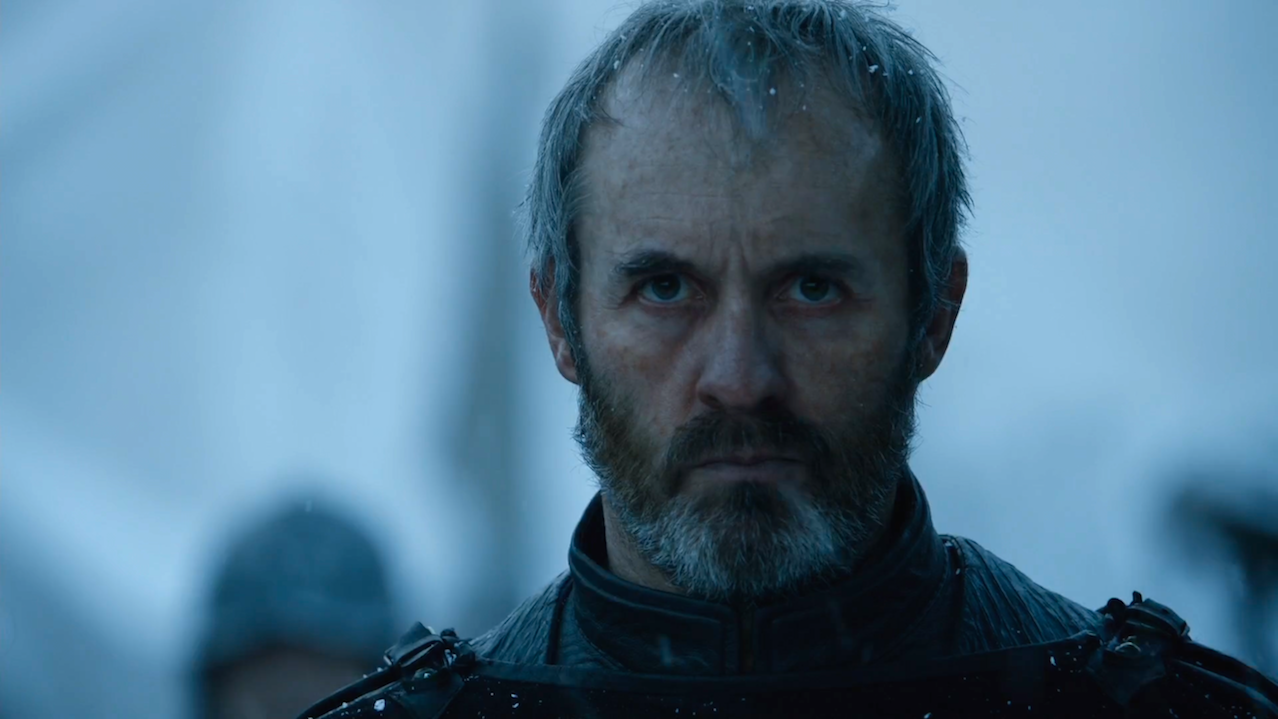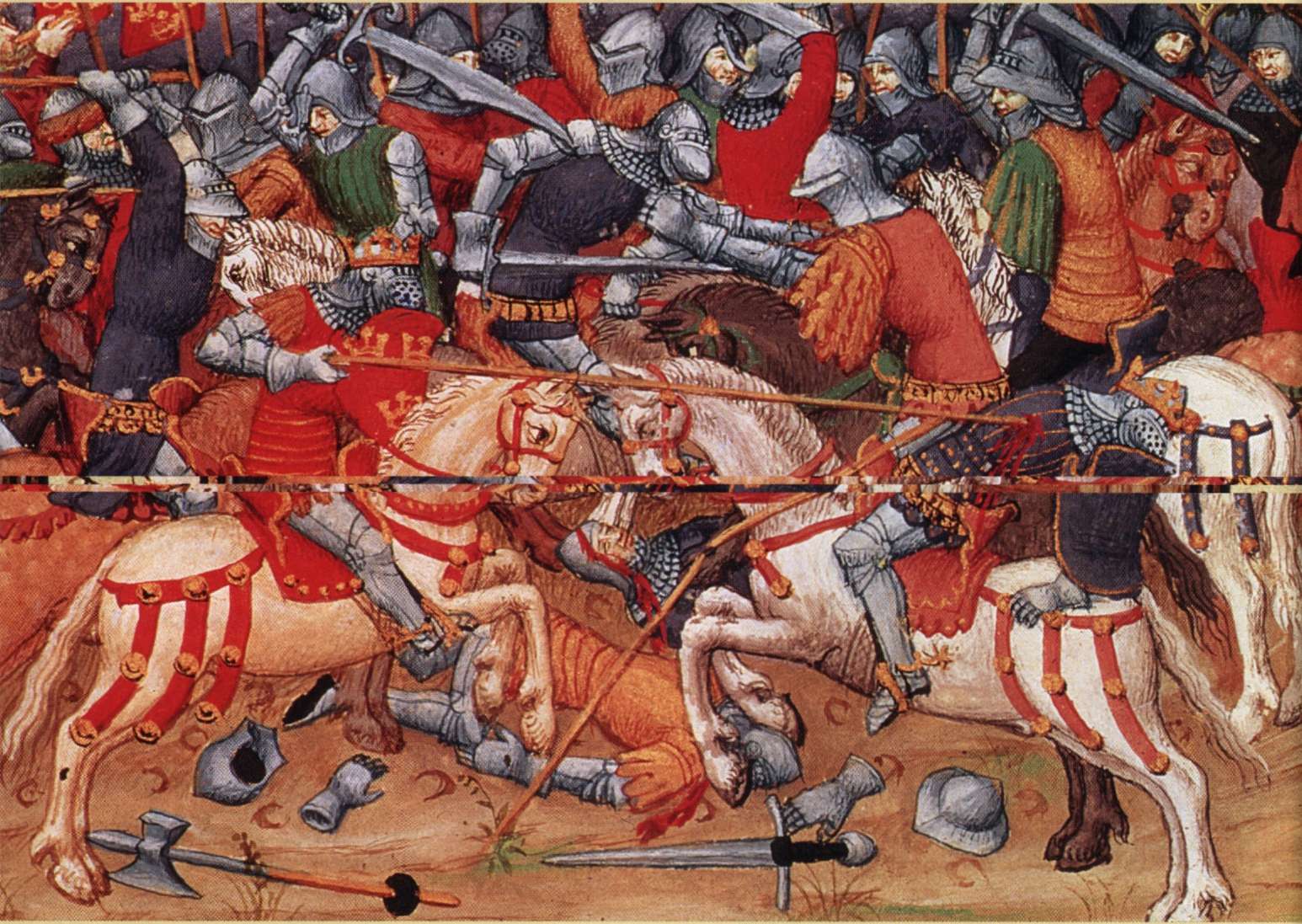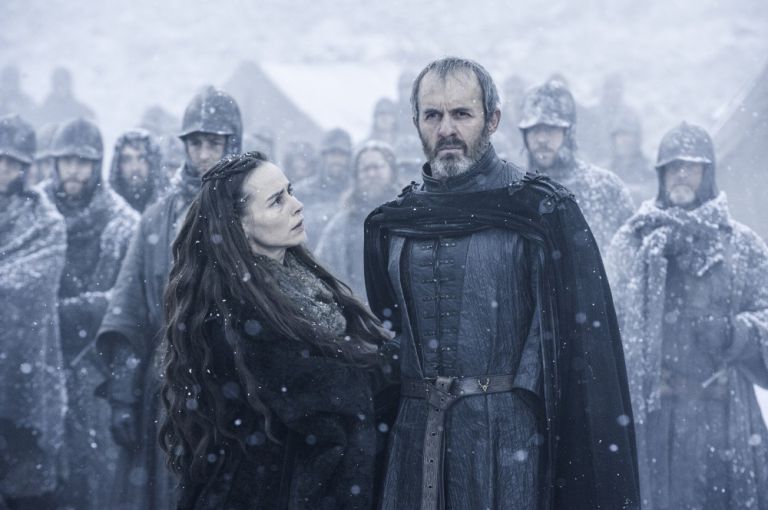It would be fair to say that HBO’s Game of Thrones is no stranger to controversy. Brutal scenes of murder, torture and rape have been a regular feature of the show since it began in 2011, but have continually garnered the show-runners as many plaudits for their gritty realism as they have criticisms for their perceived gratuitousness. But the backlash against Game of Thrones‘ depiction of violence (particularly violence committed against women) reached something of a crescendo this year after the airing of the ninth episode of season five, which contained a scene where a much-loved character is burnt alive. Indeed, so distressing was the scene in question that it prompted a raft of online articles, including two notable ones from The Guardian and Den of Geek, arguing that the show had now “crossed a line” and possibly become “too brutal to enjoy”.
It would be easy to dismiss, as many commenters already have, these articles and others like them as mere ‘hand-wringing’, testament to nothing more than the oversensitivity of their authors. But this is far from the whole story, because the common arguments in these pieces raise two very important questions worthy of further consideration, the first concerning depictions of onscreen violence and the second concerning the complicated relationship that fantasy fiction like Game of Thrones has with ‘realism’ (both historical and contemporary). I will say only a few things about the first question (which may possibly become the basis for a future Geekzine article in its own right), because in this article I want to focus very much on the second question, that of realism in fantasy fiction. As the makers of Game of Thrones defend their onscreen brutality with appeals to historical realism, and the same approximated realism is now worn as a badge of honour by many contemporary fantasy writers, it’s worth asking just how much of it is necessary in stories whose main strength has often been their emphatically unrealistic imaginative depth.
Violent Consequences
Many of the criticisms directed at Games of Thrones‘ recent onscreen horrors have been less concerned with the fact that certain events have taken place than with how those events are depicted. Is this simply a matter of audience squeamishness? Possibly. Many viewers appear happy to accept that violent acts frequently occur in the show, but don’t wish to be exposed to their ghastly consequences. There’s an element of hypocrisy here, or at the very least naivety. Fans of the show enjoy having truly villainous characters like Joffrey Baratheon and Ramsay Bolton to despise as it enriches the storytelling, and a large part of what makes these characters villainous are the many violent and horrible things they do over the course of the TV series. In other words, the entertainment many fans derive from Game of Thrones consists in part of the very things they are now complaining about being shown.
But do these things actually need to be shown? Isn’t it enough to suggest, or even make explicit, that certain horrible acts have taken place off-camera, just out of shot? This cuts to the heart of a much larger question about onscreen depictions of violence which I cannot do justice to here, but surely any writer or director who wants to depict violence in their story has a responsibility to also depict the consequences of that violence in all their horror. Films that portray violence irresponsibly, for example, are not unflinchingly brutal movies like Nicolas Winding Refn’s Drive and Ben Wheatley’s Kill List, they are the family-friendly summer blockbusters which show a sanitised type of violence that has little in the way of distressing consequences. Violence is horrible, and must therefore be portrayed horribly. This may seem like a de facto argument in defence of anything and everything put on screen by Game of Thrones and other similarly gritty films and TV shows, but it’s also hard to deny that there is a line where unflinching depictions of violence slip over into being simply gratuitous. Where precisely this line lies is open to debate, but there’s little doubt that it exists. This argument about responsibly depicting violence also fails to address the question of whether a violent act should be used in a story in the first place, irrespective of how it is depicted (‘fridging‘, for example, remains rampant in science fiction and fantasy storytelling, and is more often than not simply the result of lazy writing). The argument about responsible depictions of violence is not, however, the one advanced by most defenders of Game of Thrones‘ liberal approach to onscreen brutality. Though it may seem strange in the context of a fantasy show, they appeal instead to the importance of historical accuracy.
‘Realistic’ Fantasy?
It seems more than a little ridiculous to discuss the supposed historical accuracy of a fantasy story, but historical precedent is by far the most common argument advanced in defence of Game of Thrones‘ more hard-to-watch scenes. Even George R. R. Martin’s comments on the matter, which initially seem to bear a strong resemblance to the argument about responsibly depicting violence (detailed above) are ultimately justified with reference to actual historical events and people. The argument goes that because Martin’s world is inspired by medieval Europe (and in particular 15th century Britain), it is bound to portray societies that are extremely patriarchal, authoritarian and rife with acts of wanton brutality. That others take issue with this depiction of actual medieval life is why comments forums across the internet are currently playing host to historical debates with reference to a fantasy TV show.
But beyond the disputes about accuracy lies a bigger question: just because a work of fiction is inspired by a particular time and place in the real world, does that mean the world portrayed has to slavishly adhere to the societal practices of the period? Would it really shatter our suspension of disbelief if the writer or writers were to make a few tweaks in this regard? This is an issue that affects all of science fiction and fantasy, in other words all fiction that takes place in a world not our own: how ‘realistic’ should made-up stories be? Anita Sarkeesian of Feminist Frequency has advanced the argument (with particular reference to how female characters are treated in Game of Thrones) that it’s ridiculous to insist that a TV/book series which features magic and dragons hews as close to historical reality as possible in its depictions of violence and gender politics. If taken to the extreme, this argument represents one end of a spectrum, where nothing in a fictional work needs to bear resemblance to what we consider reality, whereas the other end would be an advocacy of straight up ‘realist’ fiction, where no fantastical elements are included at all. All works of science fiction and fantasy sit somewhere along this spectrum, because however outlandish their setting might be, their portrayal of human (or human-analogue) interaction always retains a realistic dimension. In a way, as Sarkeesian’s argument suggests, there are two ‘realms’ within works of fantasy: that of the wider setting and that of character interaction (both on a societal and personal level). This distinction is present in all fiction up to a point, but is particularly stark in fantasy stories that strive for some manner of ‘realism’ in a deliberately unrealistic context.
The Two Realms
What is open to the ‘realist’ treatment in fantasy? Game of Thrones is considered realistic because of its willingness to kill off major players, the motivations and actions of its characters and its unflinching depictions of sex and violence. Its fantastical deviations from reality, apart from its unearthly setting, are in its wider context; magic exists in this world, as do fictional creatures like dragons. Now, imagine if this scenario were flipped: the story is set in a world completely analogous to our own, but the societal and personal interactions between human beings are completely fanciful and removed from reality (insert your own joke about soap operas here). This would technically still be a fantasy story, but one that could surely alienate many readers and viewers. Why? Well, there’s definitely an argument to be made about suspension of disbelief. If we believe (sensibly) that a society’s nature influences the way people within it behave towards one another, then it would stretch our credulity to breaking point if we were presented with a vision of our world which portrayed radically different societal and personal human interactions….unless there were some external cause, i.e. a fictional adjustment to the world’s wider setting.
So does this mean that Game of Thrones‘ brutality is justified with reference to the type of society it’s portraying? Not really, because this just returns us to the ludicrous debate about historical accuracy which I mentioned above, and the reason that this debate rages on is that we can’t really know what life was like in, say, the 15th century, the way we can know what life is like in our own time. We are therefore not jarred in the same way by unrealistic depictions of human interaction if they appear in a historical setting, rather than a contemporary, relatable one. But there’s another reason why unrecognisable interactions between characters would alienate an audience, even in a completely fantastical world, and that’s because in any story characters must have a measure of relatability.
Characters are the conduit through which we enter and experience a fictional world. We either see things from their viewpoint, or understand the drama of a story through their reactions to events. As such, we need to be able to empathise with them, at least minimally, otherwise we simply can’t bring ourselves to care about what transpires on the page or screen. Human beings (or their fictional analogues) are defined by their relationships to one another; in other words, the way that characters interact is a major part of what makes them relatable, and thus a major part of what allows us to engage with the story of which they are a part. What this means is that any story, no matter how fantastical its setting, needs to maintain a certain base level of realism in the way its characters treat each other, otherwise this minimum relatability is not achieved and the audience will not feel as engaged with the story. So yes, injecting realism into fantasy, specifically in the realm of character interactions, is a good idea for storytelling purposes, but it’s also the first step on the road to gratuitous, unnecessary violence.
Obligatory Brutality
A popular fallacy among genre fans is that because a base level of realism is necessary in fantasy, this must mean that even more ‘realism’ makes for better storytelling. There’s an unfortunate tendency here to equate ‘realism’ with darkness and brutality, or at the very least to emphasise the worst elements of interpersonal human relations in the real world, and this can result in a perceived obligation to depict gratuitous acts of brutality with alarming regularity. This, however, is a mistake. Just because characters’ interpersonal relations and societal structures must be moderately realistic in order to effectively engage the audience through empathy, this does not always have to be the thin end of the wedge. It’s not that fantasy writers shouldn’t depict brutal violence in their work, it’s that they shouldn’t think themselves beholden to do so. Sometimes a bit of brutality serves the story, but this is not always the case, and just because a work takes inspiration from an actual place and time in human history, there is no overarching obligation for it to slavishly replicate the societies of that time if the storytelling will not be enhanced. This, of course, completely preempts those peculiar debates about historical accuracy mentioned earlier.
Thanks in part to the success of Martin’s A Song of Ice and Fire series, fantasy authors like Joe Abercrombie and Scott Lynch have been heralded for their ‘gritty realism’ (although both are talented writers anyway), and over the last few years this approach has become fashionable in the genre as a whole. Whether this is because it provides a unique selling point compared to more fanciful material, a reaction against fantasy fiction’s historical excesses or genuinely interesting storytelling possibilities is uncertain (although in the cases of Martin, Abercrombie and Lynch the latter does appear to be the case), but it’s undeniable that making your fantasy more ‘realistic’ is becoming a badge of honour among aspiring writers and producers. The question remains, however: how far does this realism need to go? Unless you’re aiming for a truly avant-garde creation a modicum of realism is always necessary, but in a genre historically celebrated for its imaginative depth and willingness to depart from reality, there should never be a perceived obligation to cling to the mundane, or rather one person’s perception of it. For the record, I think very little of the onscreen violence in season five of Game of Thrones was unnecessarily brutal; for the most part, what was shown was as brutal as it needed to be. That’s a contentious view, and there’ll be many who disagree, but I do believe these things need to be judged on a case-by-case basis. Sometimes brutality is justified (in storytelling terms), but there is such a thing as too much ‘realism’ in fantasy.






An interesting exposition of the issues. I feel it is less to do with gratuitousness versus necessity, as it
is authenticity versus disingenuousness. The teleplays are based on the books and unless we are to emulate the barrister for the prosecution in the 1960 Lady Chatterley obscenity trial “….is this the kind of book you would wish your wife or servants to read….” then we should encourage the rendering on to the screen of all that is on the page, as far as can be done within the bounds of effective cinematography and editing. The alternative, it strikes me, is to fiddle around with the original artistic intent to satisfy some artificial construct of somebody else’s morality. As to the cinematographic rendering of violence from a non-literary origin, then that has to be judged in its authenticity from within the integrity of the artistic offering in the visual format.